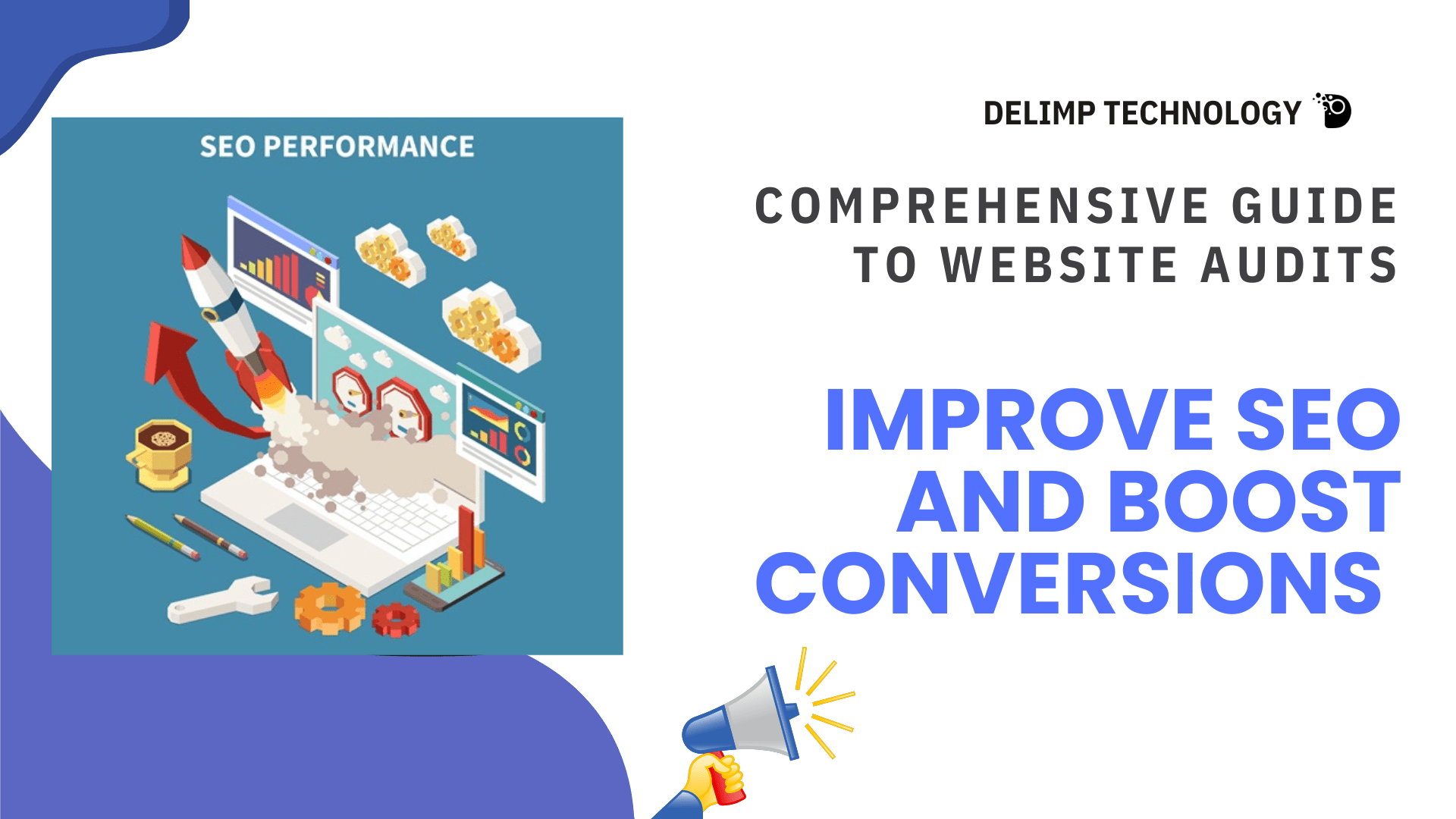A well-optimized website functions as an imperative requirement in today’s quick digital environment. Regular website audits for SEO ensure that your site will achieve excellent search engine placement while offering users smooth experiences leading to sales conversions. The guide explores the essential role of website audits along with their elements to help boost your digital business profile.
Why Website Audits for SEO Are Crucial
Website audits for SEO functioning as a diagnostic assessment help identify website technical faults and reveal both outdated content and all missed optimization possibilities. Your business needs successful Google searches because engines process more than 8.5 billion inquiries each day so a malfunctioning website could lead to visibility loss. A comprehensive audit helps identify both deterministic factors that impact your ranking position and opportunities to surpass your market competitors.
The research conducted by BrightEdge indicates search engines form the starting point for 68% of users’ online interactions. A website that lacks optimization makes businesses susceptible to losing potential customer traffic from search engines. Scheduled audits help your website stay up-to-date with changing SEO standards which now include mobile-first identification protocols along with Core Web Vital assessments and localized search engine marketing strategies.
Essential Elements of an SEO Website Audit
Technical SEO Audit
A strong technical foundation serves as the essential element that allows any SEO strategy to succeed and boost conversions. The analysis of website crawlability together with indexability joins performance metrics to form a fundamental part of this evaluation process.
- Page load times below three seconds remain crucial since Google reports users at bandon sites that load past this threshold (53% of users).
- A website evaluation requires mobile compatibility testing because mobile usage represents more than 60% of global internet traffic.
- Users will experience better navigation when search engines fix broken site links together with crawl errors that boost page visibility in search results.
On-Page SEO Audit
Search visibility depends on on-page elements because they include meta titles and descriptions alongside headers. A review of your website elements ensures optimal performance using your targeted keywords to boost page rankings.
Content Audit
Effective website audits for SEO depend predominantly on the quality of your website content. The content audit process assesses whether website content matches users’ intentions besides offering substantive value.
- Search for sparse textual content to find inefficient areas that should be substitution with user-friendly information.
- Interactive content such as videos and infographics boost user retention while raising overall time spent on your site.
- Landing pages together with blog posts perform better when developers apply structured data for enhanced rich snippet visibility.
Off-Page SEO Audit
Your website requires both to optimize SEO with additional emphasis on accumulating quality backlinks alongside managing social engagement metrics. The complete auditing process reviews your site’s backlink quality as well as quantity while validating its source from authoritative domains.
Conversion Rate Optimization (CRO) Audit
The primary purpose of SEO goes beyond visitor growth as it focuses on transforming web traffic into paying customers.
- Auditors must examine CTAs and landing page structures to detect what blocks conversion achievements.
- User behavior analysis through heatmaps helps website owners make better layout decisions.
- Make checkout and forms easy to use because this will help lower shopping cart desertion rates.
Benefits of Regular Website Audits
Through regular website audits for SEO, you get better search engine positions that lead directly to enhanced conversion opportunities. A website’s load time optimization leads to a 7% boost in conversion rates for each second it reduces page loading duration (source: Akamai). Through CRO audits businesses discover user pain points which allows them to optimize customer experiences.
Conclusion
Website audits for SEO represent an enduring process that ensures your pages maintain maximum optimization alongside excellent usability and conversion capability. Audits create a foundation for prolonged growth by fixing technical problems upgrading content materials and developing conversion-optimized solutions. Start implementing website audits right now for ranking improvements as well as market leadership and financial performance expansion. A comprehensive audit leaves no element untested because “The devil is in the details” according to a well-known saying.
Frequently Asked Questions (FAQs)
Q1. How often should I perform a website audit?
Ans. It’s recommended to conduct a website audit at least once every six months, or whenever you make significant changes to your website (e.g., adding new content, redesigning, or changing navigation). However, monitoring your site’s performance regularly through tools like Google Analytics can help identify ongoing issues that need addressing.
Q2. How does an SEO audit improve website conversions?
Ans. An SEO audit helps enhance website performance, user experience, and overall usability. By identifying and fixing issues such as slow load times, broken links, poor navigation, or lack of mobile optimization, you can create a smoother user experience that encourages conversions. Additionally, better keyword targeting and content optimization increase traffic, bringing in more qualified leads.
Q3. Can a website audit help with local SEO?
Ans. Yes! A website audit can identify local SEO opportunities such as optimizing your Google My Business profile, improving local keyword targeting, ensuring consistency in NAP (Name, Address, Phone Number) information across your site, and optimizing location-based content to attract local customers.
Q4. How long does a website audit take?
Ans. The time it takes to complete a website audit depends on the size and complexity of the website. A simple website audit may take a few hours, while larger, more complex sites with hundreds or thousands of pages could take several days. Regular audits can be faster since you’re addressing smaller, ongoing issues.
Q5. Can I perform an SEO audit myself, or should I hire a professional?
Ans. While tools are available to help you perform a basic SEO audit yourself, hiring a professional can provide more in-depth analysis and actionable insights. SEO experts have the experience and knowledge to identify nuanced issues and implement advanced strategies that may be challenging for beginners.





